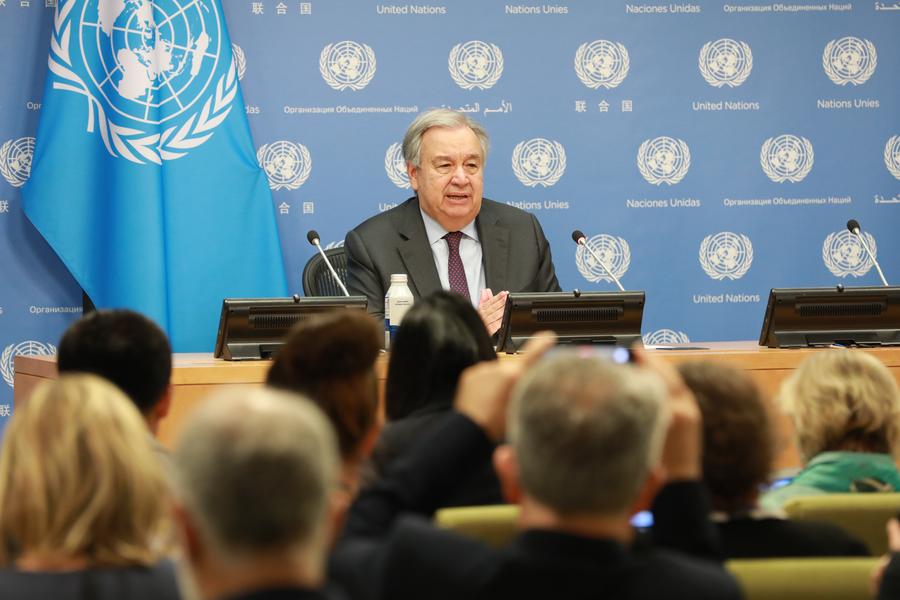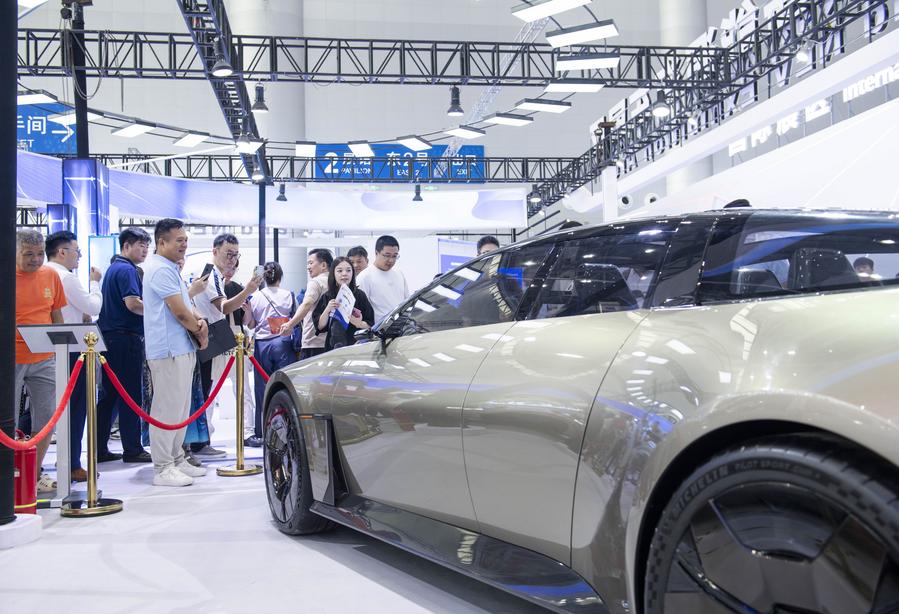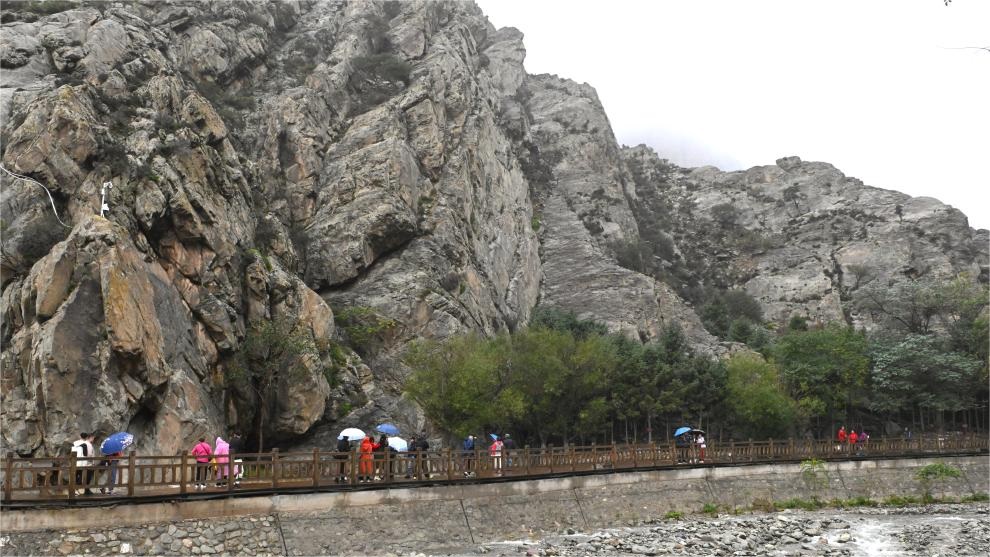Global call for policy synergy on clean energy transition

UN Secretary-General Antonio Guterres speaks at a press conference on climate at the UN headquarters in New York, on June 15, 2023. Guterres called for accelerating action to address climate change, as he voiced concerns over the world's off-tracking and backtracking in reaching climate goals. (Xinhua/Xie E)
Experts on the eve of the UN Summit of the Future said that a clean energy transition is the only path to addressing the climate crisis and achieving sustainable development.
NEW YORK, Sept. 22 (Xinhua) -- On the eve of the UN Summit of the Future, experts and diplomats gathered at a high-level event at Columbia University on Saturday, calling for rapid transition, enhanced innovation and better financing to facilitate global clean energy development that will benefit more people and nations.
According to them, a clean energy transition is the only path to addressing the climate crisis and achieving sustainable development, and the next 10 years will be a breakthrough period for such a transition on a global level. Countries must strive to curb carbon emissions and move toward significant reductions by 2035.
CLEAN ENERGY TRANSITION
There are many problems to be tackled, as supply shortage still deprives over 600 million people of electricity access, energy transition lags far behind with fossil energy accounting for over 80 percent of global energy consumption, and trade protectionism and technical barrier hinder the progress of new energy industry, Cheng Zhiqiang, executive secretary for Cooperation of Global Energy Interconnection Development and Cooperation Organization (GEIDCO), said at the event on the sidelines of the UN summit.
"This is a power game, not a technical game," said Jeffrey Sachs, president of the UN Sustainable Development Solutions Network (SDSN). There is ample money for the industry, but it doesn't flow to the poor countries; in this regard, the financing policy should be adjusted from a global point of view, said Sachs, also director of the Center for Sustainable Development at Columbia University.
King Letsie III of Lesotho said in a keynote speech, "We have to confront the reality head-on," and "pivot to renewable energy as the cornerstone of our national economy," in order to shed the country's reliance on migrant labor remittances, seek self-sufficiency and benefit local communities.
Echoing the king's view, GEIDCO Chairman Xin Baoan said the development of renewable energy must chart its way towards benefiting as many countries as possible, staying inclusive and clean, as well as being electrified and digitalized. "Clean energy is the energy of the future," he noted. "It helps us avoid wrecking our planet."
According to the International Energy Agency (IEA), global energy investment is set to exceed 3 trillion U.S. dollars in 2024 for the first time, with 2 trillion dollars going to clean energy technologies and infrastructure. Investment in clean energy has accelerated since 2020, and spending on renewable power, grids and storage is now higher than total spending on oil, gas and coal.

Visitors learn about a concept car displayed at the 2024 World Manufacturing Convention in Hefei, east China's Anhui Province, Sept. 21, 2024. (Xinhua/Fu Tian)
Fu Cong, China's permanent representative to the UN, said that China remains a leader in the transition to a green and low-carbon economy, a promoter of international cooperation for such a transition, and a contributor to global energy and climate management.
The new energy vehicles that we manufacture have been widely popular around the world, said the senior diplomat.
Xu Haoliang, under-secretary-general and associate administrator of the UN Development Programme (UNDP), said the whole picture for the industry is far from good, and many major challenges are yet to emerge. Much more money is needed for energy access and transition, he said, floating the concept of Green Bonds or SDGs (UN Sustainable Development Goals) Bond to help finance the cause.
Selwin Hart, special adviser to the secretary-general and assistant secretary-general of the Climate Action Team, reminded the attendees that leadership is needed for the upgrading of the clean energy sector, while international cooperation is a good way to make it come true. "We also have to pick up the pace of transition, guarantee fairness, as well as avoid debt arising from such progress."
Amina J. Mohammed, deputy secretary-general of the UN, emphasized that "renewable energy now accounts for over 29 percent of global electricity generation, but this figure must reach nearly 60 percent by 2030 to stay on track with the IEA's 1.5 degrees Celcius pathway." It is an essential driver for achieving Net Zero by mid-century, and a critical means of reducing inequalities through universal access to electricity, she said.
"Although 2023 saw record investments in renewables, global annual investments will need to triple to 4 trillion dollars by 2030, with 1.7 trillion dollars needed in emerging markets and developing economies," she added.
FUTURE ENERGY DECLARATION
A Future Energy Declaration was issued as a highlight of the event co-sponsored by the SDSN and GEIDCO, which assessed the challenges, trends and outlook of future energy development and proposed 10 key initiatives to promote global energy transition.
The declaration calls on "all countries to work together to accelerate the transition to future energy systems and achieve sustainable development for all humanity."
Among its initiatives, the declaration proposes that countries must strive to peak carbon emissions and move toward significant reductions by 2025; Countries should accelerate the development of renewable energy, with developed nations providing comprehensive support to developing countries to jointly achieve the goal of tripling renewable energy capacity. It also proposes a systemic approach to fully advance the energy transition, as well as developing a strong smart digital grid that tackles the energy trilemma.
Moreover, the declaration proposes accelerating the research and application of cutting-edge technologies to provide technical support for the zero-carbon energy transition, as well as strengthening the integration of energy and meteorology to enhance climate resilience, increasing investment in energy systems, adopting comprehensive measures to address the rising cost of energy use, and accelerating an inclusive and just energy transition, among others.
"Looking to the future, we propose that countries strengthen cooperation and work together to promote the global clean energy transition, accelerate the realization of future energy, and let the light of electricity illuminate the path of sustainable development so that clean and low-carbon energy can create a bright future for humanity," the declaration said.
As world leaders convene in New York for the UN General Assembly's high-level week and the Summit of the Future, the SDSN and its partners are hosting a series of events, including Saturday's High-Level Pre-Summit of the Future Event.
More than 130 heads of state and government are scheduled to attend the Summit of the Future, which is taking place on Sunday and Monday, just ahead of the annual debate in the UN General Assembly.
Photos
Related Stories
Copyright © 2024 People's Daily Online. All Rights Reserved.









